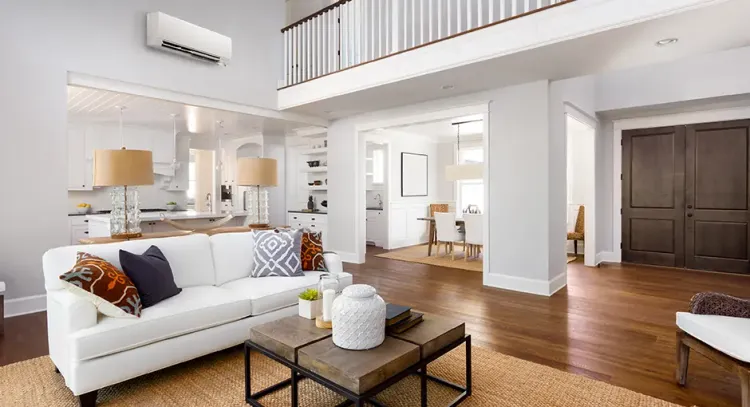High-performance home. You may have heard the term, but do you know what it means? Don’t stress if you don’t — no one expects homeowners to be construction experts. But getting familiar with the benefits of performance construction, and the experts qualified to help you achieve them, will help you make more-informed choices about your home, whether it’s new and under construction or you’re considering upgrading or remodeling.
The bare-bones definition of performance construction is taking a whole-home approach to maximize efficiency, durability, comfort and health by using best practices for applying carefully selected materials and equipment. For example, with an understanding of how leaks in a building’s thermal envelope increase the amount of energy HVAC systems consume, most builders aim to build a home as tightly as possible, meaning well-insulated and sealed to avoid air leaks.
Consider the home as a system. The parts of a house, and the performance of each component, are interdependent. Changing one variable affects another. Just as the quality and tightness of the building envelope affects the size (tonnage) of the HVAC system you’ll need, the quality and efficiency of the HVAC system will help determine whether the home will truly live up to high-performance standards. Homeowners opting for high-performance mechanical systems like variable-capacity heat pumps can achieve net-zero energy usage, qualify for green building certifications such as Energy Star® or Passive House status, or simply improve the comfort and energy use of their home.
Inviting experienced HVAC professionals into the building team brings the mechanical expertise to the process sooner for a more effective performance result. The Mitsubishi Electric Performance Construction team, for example, specializes in HVAC, but brings a unique, comprehensive knowledge of building science, best practices and how building components impact efficiency. The team is a valuable resource for builders looking to elevate the energy performance of their homes and contractors with discerning homeowners wanting energy-efficient mechanical systems with zoning capabilities.
Load Calculations
Performance construction goes beyond just specifying efficient mechanical systems and building materials, however. Residential architects who design with high-performance in mind must consider every detail that might affect a home’s conditioning needs — from its solar orientation to the color of its roof’s shingles to its proximity to reflective water sources. Even seemingly minor details can play a big role in how a home uses energy.
During the high-performance home design process, a professional HVAC contractor uses the detailed plans to calculate its load, or the total amount of equipment capacity needed to most effectively heat and cool it. Accurate load calculations are important because the wrong size HVAC system will inadequately or unevenly condition a home. Over-sized systems cause “short-cycling,” or the act of continually turning on and off, leaving the homeowner with higher energy bills to boot.
It’s only once the load has been determined that the size and type of system are specified.
Mechanical Systems
With high-performance construction, ductless heating and air conditioning units tend to be the most energy-efficient option, since the lack of ductwork means no energy is spent pushing air through long duct runs and there is no risk of pressurization issues or lost efficiency due to leaks or blockages in ductwork. That said, depending upon the home’s design, whether it is renovation or new construction and the needs of the homeowner, a performance-construction expert might recommend a low-profile or multi-position ducted air handler applied with compact ductwork to heat and cool select zones. Just like a split-ductless unit, ducted air handlers like those available from Mitsubishi Electric, save money and energy by only using the precise amount of energy needed to condition a zone at any given time.
Your HVAC contractor can draw upon the expertise of the Mitsubishi Electric Performance Construction team to identify the best options to meet your needs and the energy goals for your home.
More Than Just HVAC
Working with a team of professionals, including a builder or remodeler and an HVAC contractor, who are familiar with high-performance construction is the easiest way to get the results you want. Working with a Mitsubishi Electric Diamond Contractor that offers zoned comfort solutions, takes the customer experience a step further, offering a wealth of knowledge and experience that includes so much more than HVAC expertise.
Visit the Mitsubishi Electric Performance Builder website to learn more about performance construction and how you can increase comfort, health, efficiency, and durability in your home.









